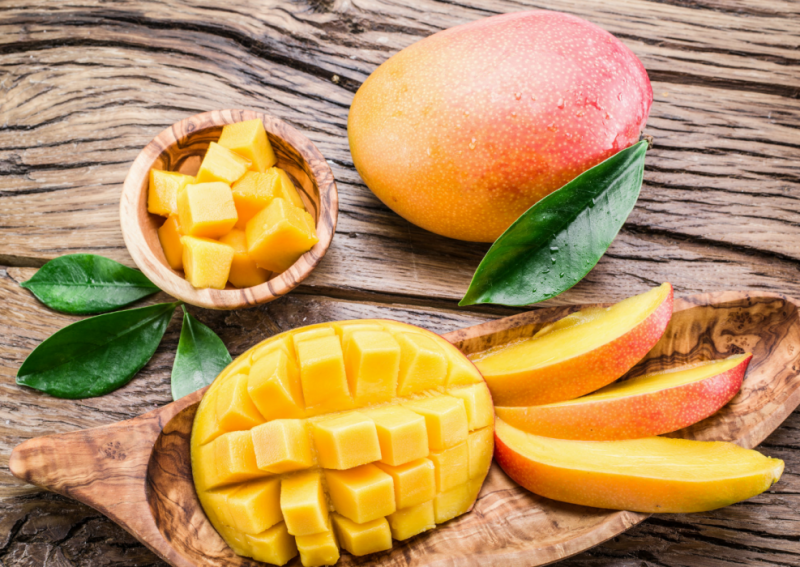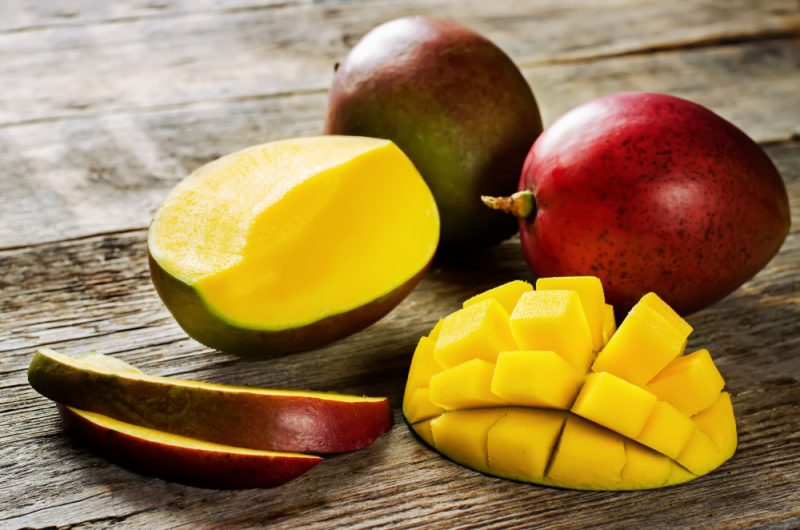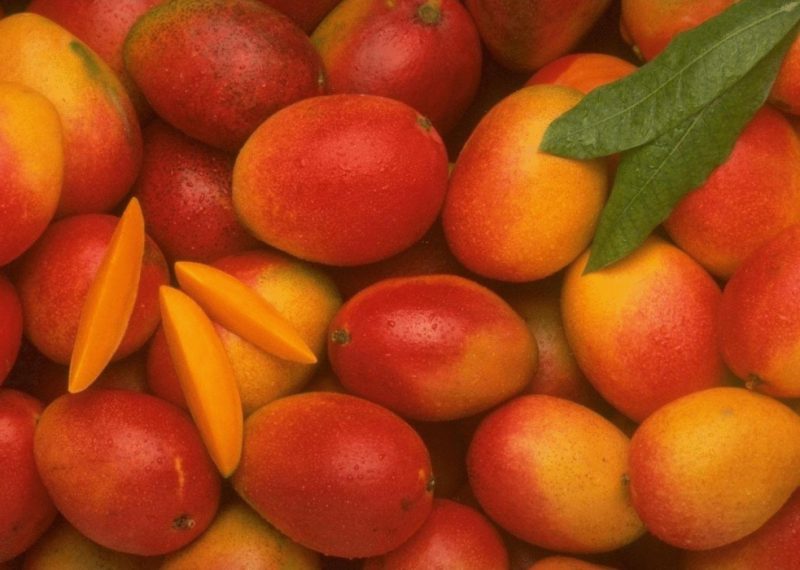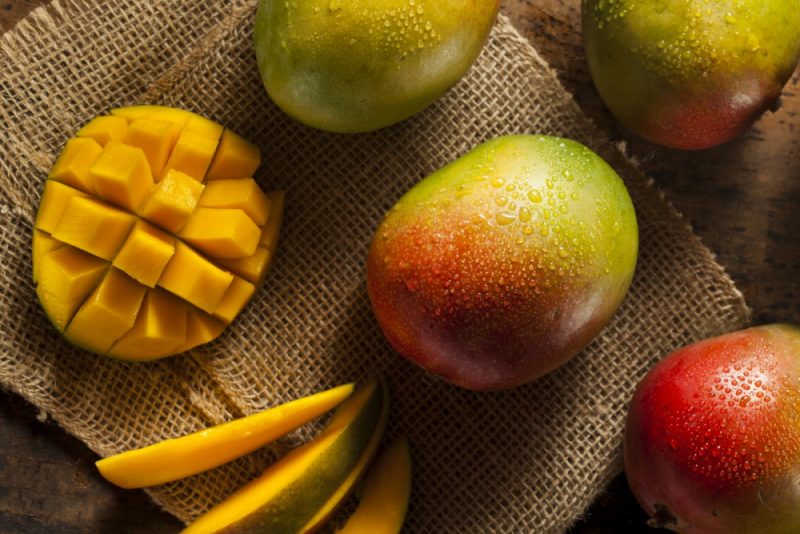Mango is a tropical fruit that has a pleasant taste and a pronounced aroma. The pulp of the fruit is quite sweet, so many are interested in how many calories are in mangoes.
Material Content:
Chemical composition and nutritional value
Mango has a unique chemical composition.
Among the main substances can be identified:
- minerals (magnesium, calcium, phosphorus, zinc, selenium, manganese);
- vitamin complex;
- organic acids;
- polyphenols;
- sugar;
- starch.
With regular use of mangoes, the fruit has the following positive effects on the human body:
- Normalizes and speeds up the metabolism.
- Improves sleep.
- Increases stress tolerance.
- Strengthens the immune system.
In addition, doctors note that the use of mangoes is a good prevention of cancer. To do this, you need to eat up to 300 g of fruit pulp per day.
Calorie content and BJU mango
Calorie content of mango (fresh) - 67 kcal per 100 g.
In this case, the composition of the BJU is as follows:
- proteins - 0.5 g;
- fats - 0.4 g;
- carbohydrates - 14.9 g.
As you can see, the amount of carbohydrates in the fruit is quite large. But experts still recommend it during the diet. The thing is that fresh mango refers to products with a negative calorie content. For its processing, the body spends several times more calories than is in the pulp of the fruit.
Mangoes have different weights, so it is very difficult to accurately determine the calorie content of one fruit.
The average fruit reaches 350 g. This means that in 1 pc. fresh mango 235 kcal.
But in dried mangoes there are much more calories.For 100 grams of the product, 314 kcal. This phenomenon is explained quite simply: during the technological process, mango slices are covered with a lot of sugar caramel, butter and other substances that increase the shelf life of the product.
The content of vitamins and minerals
Exotic fruit contains a lot of useful trace elements:
- Beta carotene. Many experts consider it a real "elixir of youth." Once in the body, it is partially converted to vitamin A. Useful properties: acts as a natural antidepressant, is responsible for the regeneration of cells, improves vision, protects the body from premature aging.
- Vitamin C. Improves immunity, promotes the absorption of iron, strengthens capillaries. The maximum amount of vitamin C is present in unripe mangoes. In ripe fruit, its concentration is more than 40.4%
- Vitamins of group B. They contribute to the normalization of the digestive tract, improve metabolism, stabilize blood glucose levels.
- Copper. This is a special enzyme that is responsible for the absorption of proteins and carbohydrates, saturates cells and tissues with oxygen.
This fruit is especially useful in winter to maintain immunity and avoid colds.
Useful properties of exotic fruit for weight loss
Is it possible to eat fruit while losing weight? Nutritionists note that its calorie content (fresh) is quite low.
In this case, special rules must be observed:
- Eat no more than 300 g of pulp per day.
- It is desirable to eat fruits in the first half of the day (maximum until 15.00). This is due to the fact that the mango contains a large amount of sugar, which may not have time to digest before bedtime, which will lead to the appearance of fatty deposits in the abdomen and thighs.
- There are practically no proteins in mangoes. Without proteins, a person will not have enough strength and energy. That is why nutritionists recommend eating mango, washed down with milk, or making smoothies. In this case, it is advisable to choose milk with the lowest percentage of fat content.
The benefits of mango during weight loss are undeniable. Fruit performs a number of functions:
- improves metabolism;
- normalizes the digestive tract;
- promotes the breakdown of fats.
Candied mangoes during the diet are not recommended.
Contraindications to the use of mangoes
Mango has a number of contraindications.
Fruit can be harmful to the following diseases:
- diabetes mellitus (type 2.3);
- individual intolerance to the fruit;
- gastritis;
- exacerbation of gastrointestinal diseases;
- diathesis;
- hives.
It is also worth noting that mango is a strong allergen.
Therefore, with great care, it should be eaten by pregnant women, women during lactation, and children under 3 years old.
Mango is considered an exotic fruit, but on the shelves of large supermarkets it can be found year-round. The pulp of the fruit is juicy, aromatic, has a sweet taste with a touch of sourness.
The energy value of mangoes is not very high, so the fruit can be consumed during the diet. It is important to comply with the recommendations that were given in the article.
But it is better to refuse candied mangoes. Their calorie content is much higher than that of a fresh product. It’s also better not to add canned mangoes to your daily diet. Its calorie content is overestimated, and there are not very many useful trace elements after technological processes of processing.
















